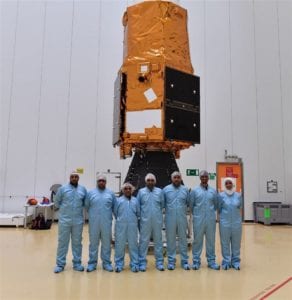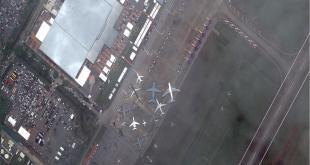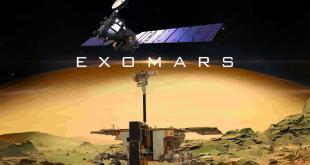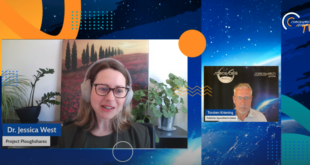
Arianespace has announced that it intends to launch the UAE’s second reconnaissance satellite, Falcon Eye 2, on board a Soyuz satellite launch vehicle from the Guiana Space Centre in early March 2020.
Falcon Eye 2 was originally slated to be launched on board an Arianespace Vega satellite launch vehicle, but the loss of Falcon Eye 1 on board a failed Vega SLV launch in July 2019 means that the French launch company had to switch to the Soyuz launch vehicle to smooth out the planned 2020 launch schedule of the Vega SLV.
“The Falcon Eye satellites have always been compatible with Soyuz. This back-up solution secures a launch early March, fulfilling our customer’s request. It has also the effect to make the Vega manifest smoother in 2020, with four targeted launches, including the Vega C Maiden Flight,” an Arianespace spokesperson told the Khaleej Times, an Emirati English-language newspaper.
Jeremy Close, a spokesperson for Airbus Defence and Space, one of the manufacturers of the Falcon Eye satellites, told Space News that, “Falcon Eye has been designed with launcher flexibility and is compatible with both Vega and Soyuz rockets. In order to reach orbit as soon as possible and start its mission for the UAE, it has been decided that Falcon Eye 2 would be launched on a Soyuz rocket.”
The Falcon Eye reconnaissance satellites were ordered by the UAE in 2014 and were manufactured by a French consortium of Airbus Defence and Space, who built the satellite bus, and Thales Alenia Space, who built the payload. The Falcon Eye satellites are based on the French high-resolution Pléiades satellite, and satellites similar to Falcon Eye have been built and launched for Morocco.
Falcon Eye 1 was lost during a launch accident in July 2019 on board an Arianespace Vega satellite launch vehicle. The UAE Space Agency successfully claimed the insurance for the lost satellite.
 SpaceWatch.Global An independent perspective on space
SpaceWatch.Global An independent perspective on space




